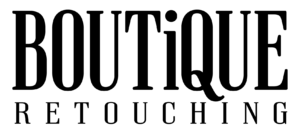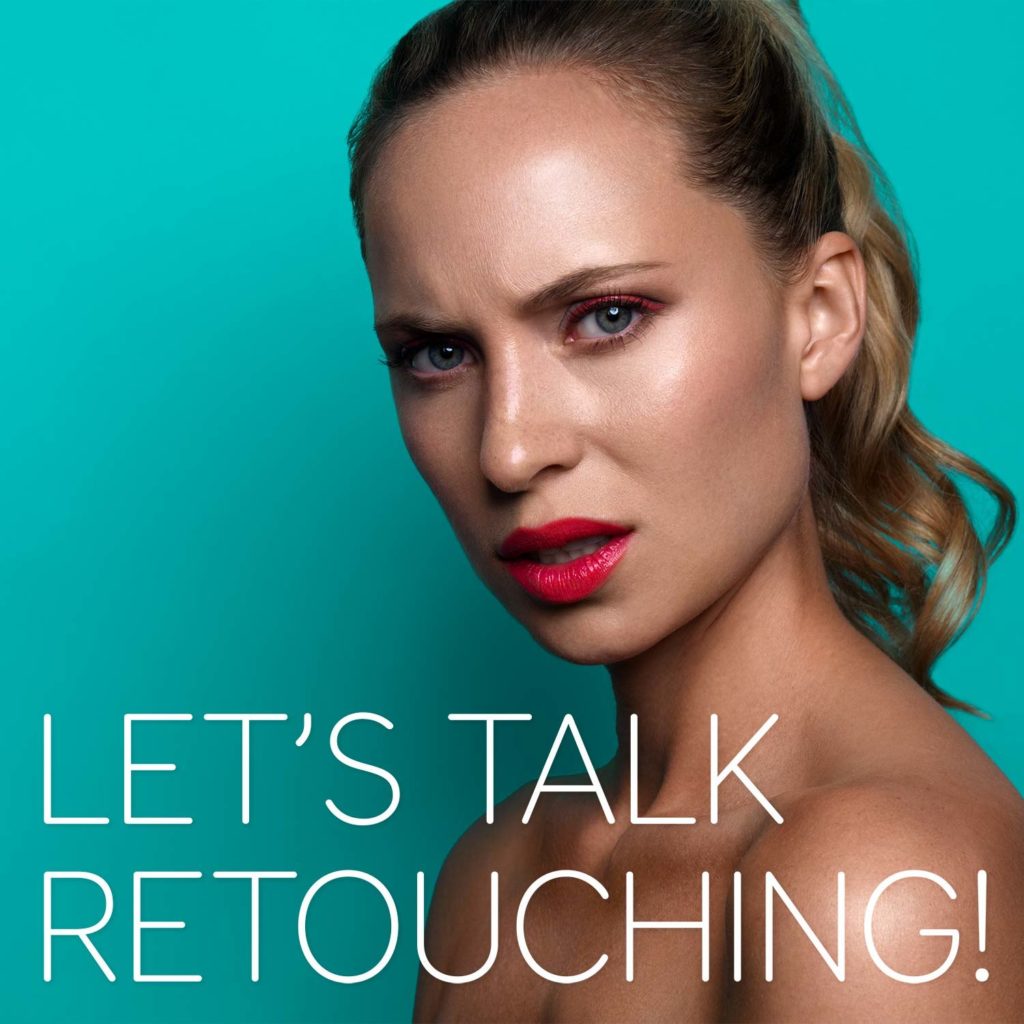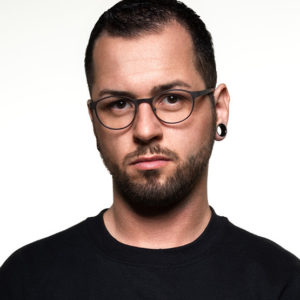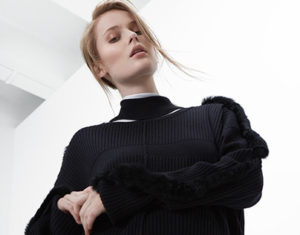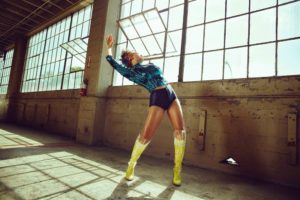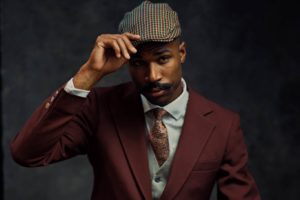Hey guys, my name is Daniel and I am your host on the let’s Talk Retouching podcast. Follow along when we talk with industry professionals about all things post-production and retouching. I’m sure it will either be entertaining or educational, so please enjoy.
Hey guys, what’s up? My name is Daniel, and you are listening to let’s talk, retouching as and this is the first episode. Let’s talk what you can expect to get out of this podcast and what it will be.
So let’s talk Retouching is meant to be a podcast, but also a video series in which we talk about all things retouching and postproduction. Some of it will be interviews with industry professionals and other episodes. I might be talking about questions I get asked again and again and again. My name is Daniel and I’m your host on this show, so let’s talk a little bit about myself. How I came to retouching and how this podcast came to me.
So let me start by saying I am a professional retoucher. My main focus has become. Beauty, images, portraits and advertising with cosmetics here and basically all sorts of people related advertising. The focus on beauty images came to be as I am super drawn and always been super drawn to. And I also simply love doing skin retouching. But let’s start way back when I didn’t even know of the existence of retouches and didn’t know about retouching being a thing haven’t even considered picking it up.
So yeah, let’s talk about how it actually got into this stuff. I still remember when I was a child, I found everything technically interesting and tried to secretly take it apart without my parents’ knowledge. Of it and later I built my first computer from other people’s broken computers, and this was still before the days of Windows 95, but fast forward a few years when I was still in high school. I started playing guitar in bands and I had a desire to learn to play the guitar. Since I was a little kid, but my parents somehow. I didn’t really support it.
Later in life I sat down to learn it on my own without taking any classes and it worked out relatively well for me. And aside from playing music, it also satisfied my desire for using gear and stuff. But then it mainly was kind of a creative outlet for me and a way to express myself. By that time I also discovered Photoshop for the first time in my life. I think it was CS2. I had first copy of it.
One reason for that was I was always eager to learn about all sorts of programs and applications that I couldn’t get my hands on and what I could do with them and the main driver, however, was the band, so we needed show flyers. In the beginning and later we needed a logo and then to a later point we needed shirt designs and all that stuff and that needs, but we haven’t really had any money to pay someone else to do it, so it was on us to take care of all of that, or it would not have happened. And the person filling things out was somehow always me. So, I remember spending hours and hours night after night trying to figure out.
How that Photoshop thing worked and to eventually came up with something we could use for our promotional materials and today it still makes me laugh. Looking at the stuff I was creating or. Producing, but for the time it was just good enough for what it was. And to give you a reference, I was just learning how to use layers properly and what pixel graphics were versus what a vector graphic is and that stage your skill level should stick with me for quite some years without further advancement, and I wasn’t really getting better. Because my main focus was the the music thing and I put all my.
Push into playing that stuff. Uh, writing the music and trying to produce it with friends and stuff like that. So yeah, didn’t make any process with Photoshop, so later in life when I had finished school, it seemed logical to me to go into the field of it. With all the. Experience I’ve already had with the computer and this stuff I’ve been doing for years without having a formal education on it, so I went to school and picked up a job basically, and what I had studied was parts it and parts electronics and it involved electronics, hardware, computers, networks. Phone installations audio electronics, data modulation and transmission, Optical systems, printing all that stuff that is more hardware based in the IT environment and after the educational phase and the schooling I got stuck in the printing industry and was working in hardware service doing implementation and customer service in the B2. B world for. The larger printing. Brands like Konica Minolta, Canon, Xerox, Kyocera, and that got me a lot of experience in the field of printing and color management, and I also got involved with advertising agencies because many of them were our clients and we did. Customer service for them in terms of maintenance for their printers and helping out when they have problems with it.
When I was in agencies, I always were curious about the work they were doing and were asking questions. When I got in contact with the designers and that has grown my passion for. The creative industry as well. And yeah, I learned a lot about the printing industry and what expectations there are in the advertising world in terms of printing their product. Tests their color management, workflows, calibrations, how the profiles work and like with a lot of things in life, I think I could accumulate a lot of knowledge over time and too late a point in life. Use it for different purposes just because I had been curious all the time. But let’s talk about that a little bit later, so I kind of got my job, which was super technical, but over time I lost my creative outlet, which was the band thing because we had more breakups in the band and I eventually got really fed. Up with having to deal with musicians looking for new members to fill in with the band and it sucked all the drive and patience out of me. So it simply gave up pursuing it, but on the other hand, I at some point noticed what a big hole it left in my life and for a while I. I haven’t found any solution for filling that gap and how to deal with it because they obviously need it. That creative outlet to balance out my more technical work life that I had and was realizing I really, really loved playing with gear and acquiring gear and trying things out. All sorts of electronics and computer stuff.
And I still love that and love that back then, but. And there was no balance in my life and there had to be something for me, but it seemed not to be music anymore and I remembered back when I was playing in bands I always admired. People taking stunning images at concerts. I like images in particular. When they showcased a lot of movement through mixing flash along with long shutter speeds back then, I surely had no clue what that meant because I had never really used the camera and the only camera I ever had used to this point was a point and shoot film. That I had when I was a child. The only buttons it had were a shutter button and one button to turn on on or flash and everything else. It did whatever it. Yeah, so photography was something creative, sometimes magical for me and I have just admired people who could take good pictures. So at some point I thought maybe I wanna try it out myself and I was eager to find out about it and intended to approach it the same way. I had approached learning the guitar. Like 100% self-taught and I still have never taken any photography classes.
What was important for me always was not the matter of creating art, but going through the process of trying and error and eventually figuring out how things work. And I have always enjoyed this process of learning. For how long I can remember in my life and today I know how much this strive to gain fundamental understanding of different topics. Has helped me to become knowledgeable in many fields and later on to make use of this information. Again, this can be either direct use or it can be drawing from the information you have accumulated overtime and make cross connections to different fields and different information and then you can come up with new solutions without. Being taught how to solve problems. And after all this approach and the knowledge I have acquired has enabled me to build a successful business for myself without having to rely on other people to build it. And I, for the most part, still do most of the stuff myself, because I also like to be involved.
But it also has put me in a position in which I am very comfortable sharing all that knowledge because I know some people do not enjoy the process as much as I have or still. You and they need someone to help them overcome their fear of getting started often.
I really like teaching and helping other people and seeing how they grow. Firstly with joy somehow and also not proud of myself. But on the people achieving things. After you have kind of helped them to get there, but back to the photography topic you can’t imagine I had sucked in photography. I mean, everyone ever did when they started out and so did I. As I was not super keen on involving people at that time, I tend to take pictures of stationary objects and try the kind of St photography. You’re not really supposed to do, and I still suck because I was mostly shooting in Full Auto mode and I continued to do so for quite some time, which is not a bad thing when you’re starting out. And I somehow was afraid for quite some time to get away from auto mode because I was overwhelmed with all the adjustments you could.
At the same time as I had picked up a camera, I started studying web design on the site while I was working in my day job, I felt like working in a more creative industry might be more appropriate than doing all the technical work. So, I went on venturing into the. Creative world by studying web design I knew I would completely suck in graphical design or classical. Design because I simply have not turned for it at all. I still consider myself a really, really, really bad designer, so I went for a more obvious choice. Going into web design, which involves more coding than it has to do with design work. Early on in that course I got confronted with that Photoshop thing again. So, for web design you obviously are using way different tools and than you would use in photography and read. But I was curious about the program itself as I had that camera, I thought to myself, OK, why not Photoshop my images if I have this program and it should make my images better, right? So as my images sucked, and I had this magic application that everyone was talking about.
I went full on into learning about what to do with images after they have been taken and all my images haven’t gotten better in any way, even though I was thinking they were. I had tried every. Technique and trick on images I had with the intention to make them better. However, at some point I realized it was not the case, so. What to do? Digging deeper into that Photoshop game, well obviously. As far as I remember, I was taking notes and posting posts all over my monitor to remember all the steps of manipulating images and all I did was basically following step by step instructions I found all over the Internet. Needless to say, it hasn’t really got me. Well, my images were still so poor while I was spending tons of time in front of the computer. But hey, I could claim to be more knowledgeable about Photoshop than most of my friends. Well, those who had no real interest in photography nor in Photoshop, so at some point I realized this approach couldn’t get me anywhere and I was super unhappy with my result.
I think some of you or most of you even can relate to this feeling. So instead of looking at Photoshop as the solution to get better images, I eventually started learning about photography and by the time I had a much better understanding what I like to take pictures of and had learned a little bit about lighting, so I was back to a more technical approach to photography. And to this day, I like the challenge of playing with lights, finding solutions with the gear I have at hand today. I own quite some gear so that it is not as relevant of what I own because I have so much gear at hand. However, sometimes you don’t have. All your gear with you. You might choose on location, or you consider just packing what you can carry on your own. Then the challenge becomes much more obvious, and you are back to solving problems again. And to make things work for you overtime, I had gathered much better understanding of how light works.
This side note here light behaves pretty much the same as audio waves do. Because waves are waves and physics are physics. And I could relate to that quite well comparing it. To the audio. Experiences I have made in the past, but something was still missing in my images. I could take really good images, but still they were not looking as polished as they could be. And then there was still this Photoshop thing I used to play with well. Like I had done before I went back to the idea of trying to make my images better as I then had learned more about photography and also about what I want to get out of the images. My approach had completely changed, yet I still had to figure out a way how to get. Somehow, and some when I stumbled about the thing called high end retouching and it got me curious to invest further into this topic as all those images were Super super polished, there had to be some techniques and tricks that I had not known of, right? So what was it that all those? Andrew just did it differently from me considering myself. A Photoshop.
It really got me curious, and I was venturing on to learn about what they might do differently and you can’t believe me. I had spent quite some sleepless nights over trying to figure out what I am retouching meant and what it was all about. At some point I however noticed they are not using other techniques than once I already knew. Just in a somehow a different way, but practicing all this was immensely time consuming. I remember for it to take me up to two weeks to finish one single image while working on it every single night. Could this be? Was that high end retouching? And I have heard Photoshop Gurus and Photoshop trainers who were selling techniques preaching that high end retouching meant to spend all the time and care possible on an image. But now I know this is not true care. Yes, time not to dare say not. In reality, nobody makes money spending up to like 16 hours for retouching one beauty image. If it takes you such an amount of time to finish an image, you simply are not there yet. You’re not a high end retoucher, but it took me up to two years to eventually realize that why I thought I could already consider myself a high end retoucher. I now know better just knowing the techniques and spending the time does not make you high end retoucher, but the question remains, how do you actually get there? How can you become high end rated? So for me, while there were already plenty of tutorials on Photoshop out there, we touching tutorials were not really a thing by then and material to learn from was quite hard to come by and I would argue it still is. And one reason for that is that most terrorists do not teach you. Fundamentals and how to solve problems. They are only teaching you certain techniques. Another step by step recipe.
My goal, however, was always reaching the top and becoming one. The best, but I still had no idea how to get there, but my passion for retouching was healed so I spent more nights practicing and practicing and the one thing that allowed me to become better was to always question my abilities. So I kind of liked what I had done with an image when it was finished, but this feeling vanished quite quickly. Realizing that I still had a long way to go. 30 tons of more research about techniques and my understanding of Photoshop slowly advanced being a very technical person and having all the technical education really has helped me to understand what was going on, how filters worked in Photoshop, how pixels worked and. How color worked and also I was constantly comparing myself to other researchers I liked. I admired them for the work that they did and they had to drive to become as good as they are, even not even better.
One day and one day all of a sudden all seemed to make sense. This experience is quite hard to explain. What it is like a switch was being flipped and all of a sudden, I saw things I had never seen before. All of a sudden I saw all sorts of transitions within the skin, various tones, shades and colors. It somehow all fell together. And I was wondering how this was possible. Why was I not seeing all this before and to this day I have no answer on why this happens and when this happens to a person, but it happens with many people, and I know of many who have the same experience as they go through learning and training their eyes. I also have heard of people claiming their superior color vision comes from accidents, but most likely it comes from practice. It is not a supernatural gift and it’s not restricted to skin and photography. Once your vision and attention to color transients has changed, it has changed with everything. And just recently I had a friend asking me to help her with color management because she realized the mismatching colours in her images throughout different platforms. I was telling her maybe you have always done things potentially wrong, but have not seen it until recently. She kind of refused to believe in that. It could. Me, but one week later she came back to me, saying I was right. She had been following my instructions for color management and had no issues anymore and it must have been that she has not seen it before. Not the same way, and all of a sudden things made sense for her too. So back to my retouching.
Learning as I knew about all the possible techniques that I used in high end read. From there on, I basically knew what it takes to eventually become a high end retoucher. I knew what to look for. I knew the techniques and so most of my effort went into becoming faster and more efficient, so up until that time I retouched my own images for the most part. But over time, my quality and efficiency increased. And so did my confidence in myself, and I wanted to retouch for other people as well. I was fortunate to find some people allowing me to work on the images, and I wanted to prove myself worthy of it.
Luckily, there were no deadlines and no pressure to deliver the images and I would not have made. Any real-world deadline by. Then, but after finishing the images I had learned what other people expect from a retouch. Because the retouching business not only consists of retouching, retouching is just a part of it and the rest is marketing. A lot of client communication understanding what your client wants from you and some other boring tasks.
However, it all the valuable lessons to learn. Aside from practicing retouching. Now that I was confident about my skill level because my vision has changed in terms of how I see color and transient and because my retouching capabilities overall have increased over time, I was more confident to go out and look for client work and over time I managed to work on quite some. Directs from high end magazines to multinational ad campaigns which I could pull off all by myself without having to outsource some of the tasks to other researchers.
So this is basically how I got into retouching, but it didn’t stop there. I was always involved in different communities. Helping other people out and over the past few years I have taught and mentored quite some people, helping them to also achieve their goals. Also becoming Retouchers working on High End magazine stories like Vogue Bazaar and I’ve even mentored people who later and were fortunate to work on Nike advertising and all this proved to myself that the knowledge I have gathered over time can be valuable to other people. And I also like seeing other people putting this information to work for themselves, and that was the reason why I initially. Started offering classes on my website which is BOUTiQUE RETOUCHING.
And also, I hope this podcast will be a contribution to other people to inspire them to give them more knowledge about retouching. So may it be just talking to other people about interesting topics or how they got into retouching, which experiences they have made, which clients? Experiences they have gained so you don’t have to. Go through all of this. Yeah, overall, I just hope this podcast will be partially entertaining and partially inspiring. Partially educational.
So let’s talk. Retouching is the theme of the podcast, and I hope you will enjoy the upcoming episodes. So if you want to find more about how to learn retouching, I am about to build an educational platform on Android retouch.com.
At some point you will be able to go through classes, learn with other people. And also get certifications to prove that you are skilled in the field of retouching. So guys that was it, I’m going to get. Out of here, I really appreciate it. That you for having stuck with me for this long and I would also like to see you in the next episode. See you then, bye bye.

